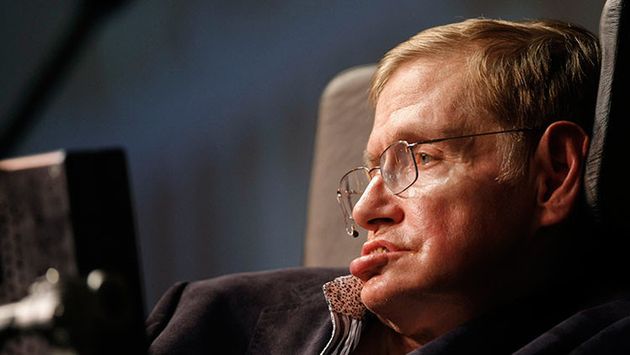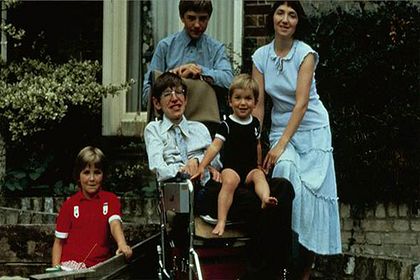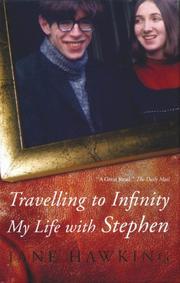Physicist Stephen Hawking dies at 76
“He once said: ‘It would not be much of a universe if it wasn’t home to the people you love’”, the scientist’s children say in a statement.
CAMBRIDGE · 14 MARCH 2018 · 16:16 CET

The renowned physicist and author of A Brief History of Time, Stephen Hawking, has died at 76, at his home in Cambridge.
Hawking’s children, Lucy, Robert and Tim released a statement this Wednesday morning confirming his death.
“We are deeply saddened that our beloved father passed away today. He was a great scientist and an extraordinary man whose work and legacy will live on for many years. His courage and persistence with his brilliance and humour inspired people across the world”.
“He once said: ‘It would not be much of a universe if it wasn’t home to the people you love.’ We will miss him forever”, they added.
BLACK HOLES, SCIENCE AND MATHEMATICS
Hawking was diagnosed with a rare form of motor neurone disease at the age of 21, and doctors expected him to live for only a few more years. The illness left him in a wheelchair, he could only speak through a voice synthesiser.
The British physicist was the first to set out a theory of cosmology as a union of relativity and quantum mechanics.

He also discovered that black holes leak energy and fade to nothing. That phenomenon would later become known as Hawking radiation.
Additionally, Hawking, along with mathematician Roger Penrose, applied the mathematics of black holes to the universe and showed that a singularity, a region of infinite curvature in space-time, lay in our distant past: the point from which came the big bang.
A Brief History of Time, published for the first time in 1988, is his more famous work. The book made the Guinness Book of Records after it stayed on the Sunday Times best-sellers list for 237 weeks. It sold 10m copies and was translated into 40 different languages.
BEYOND THE ACADEMIC WORLD
Hawking’s popularity went beyond the academic world, when he appeared in several TV shows including The Simpsons, Red Dwarf and The Big Bang Theory.

“It is not film about science, but about the frailty of life”, theologian and journalist José de Segovia wrote in an article for Evangelical Focus.
“Although The Theory of Everything it revolves around the life of a scientist who has been used by many atheists, it is surprising how much the film talks about God”.
HAWKING AND GOD
Hawking married his first wife, Jane Wilde, in 1965, two years after his diagnosis. The marriage broke down in 1991.
According to Jose De Segovia, “Hawking become increasingly more atheist after leaving Jane. At first, he spoke about God in his books, even though he was not a believer. The strange thing is that Jane believes that the same illness that strengthened her faith, explains the atheism of Stephen”.
She wrote a book called Travelling to Infinity: My Life With Stephen, which “contains some very surprising anecdotes, for example, about the time when Hawking smuggled Bibles into Russia, along with a group of Baptists. Many atheists will be flabbergasted by reading about such episodes”, explained De Segovia.
“We are told how Stephen interceded with the Pope to rehabilitate Galileo and, like his colleague, the award-winning physical theorist John Polkinghorne, he decided to study theology, to be ordained into Anglican ministry”, the author pointed out.
In an interview with The Guardian, Hawking said: “I regard the brain as a computer which will stop working when its components fail. There is no heaven or afterlife for broken-down computers; that is a fairy story for people afraid of the dark”.
Published in: Evangelical Focus - science - Physicist Stephen Hawking dies at 76
